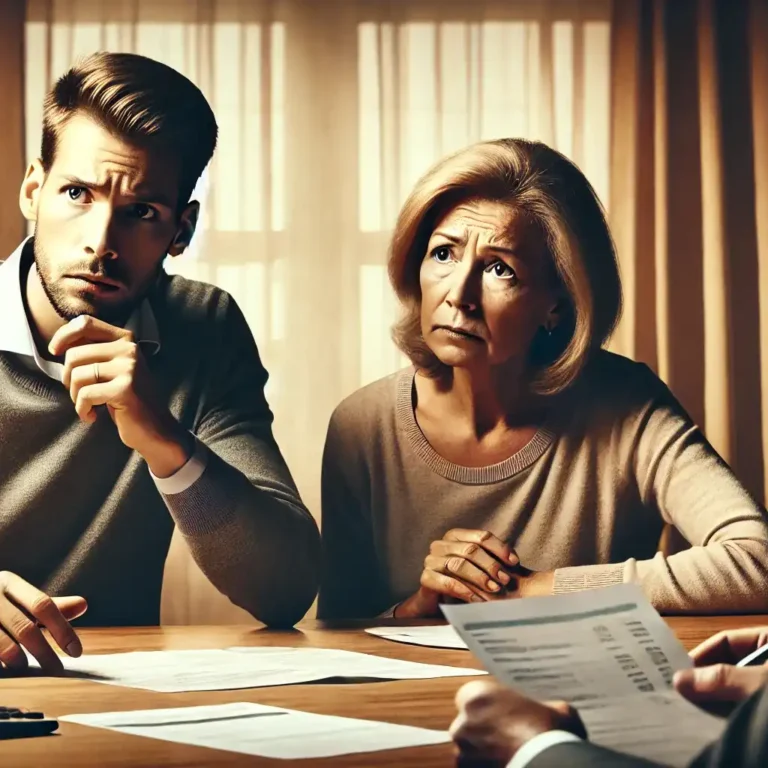When Does an Estate Have to Go Through Probate? Essential Guide for Heirs

Probate is required when an estate has assets that need to be legally transferred after someone’s death. However, not all estates must go through probate. Several factors determine whether probate is necessary, such as the type of assets, how they are owned, and the value of the estate. Here is a detailed guide explaining when probate is required, with examples and steps involved in the process.
What is Probate?
Probate is the legal process of administering a deceased person’s estate. It involves validating the will, paying debts and taxes, and distributing the remaining assets to beneficiaries. Probate ensures that the estate is handled according to the law and the wishes of the deceased, if outlined in a valid will.
When Does an Estate Need to Go Through Probate?
1. If There is No Will (Intestate Estates)
When a person dies without a will (referred to as dying intestate), probate is usually required to legally distribute assets according to state law. The court appoints an administrator to handle the estate and ensure that assets are distributed to the rightful heirs.
Example:
A single man dies without a will, leaving behind a home and several bank accounts in his name only. His estate must go through probate so the court can distribute his assets to his closest family members, typically his children or parents.
2. Sole Ownership of Assets
If the deceased owned property or assets solely in their name, those assets generally need to go through probate to be transferred to the beneficiaries.
Example:
If a woman owned a house and a car solely in her name, probate would be required to transfer ownership of those assets to her heirs, even if she left a will specifying who should inherit them.
3. Estates with Complex or High-Value Assets
Larger estates, particularly those involving multiple properties, businesses, or valuable personal assets, often require probate to manage complex distribution and handle creditor claims.
Example:
A man passes away owning two homes, a family business, and multiple investment accounts. Because of the value and complexity of his estate, the court must oversee the distribution of these assets through probate to ensure legal compliance.
4. When There Are Disputes Among Heirs or Creditors
If heirs contest the will or if creditors claim debts against the estate, probate is often necessary to resolve disputes under court supervision.
Example:
After a woman’s death, her children disagree over the distribution of her assets as stated in the will. One child challenges the validity of the will, requiring probate to settle the dispute.
| Probate Required | Probate Not Required |
|---|---|
| No will or intestate estate | Assets held in a living trust |
| Solely owned property | Jointly owned property with survivorship rights |
| Large or complex estate | Payable on Death (POD) accounts |
| Contested will or debts | Life insurance policies with named beneficiaries |
When Probate is Not Required
1. Assets in a Living Trust
When a person places assets in a living trust, those assets bypass probate because they are technically owned by the trust, not the individual.
Example:
A man transfers ownership of his house and savings account into a living trust, naming his daughter as the beneficiary. Upon his death, the trust immediately transfers the assets to his daughter, avoiding probate.
2. Joint Ownership with Survivorship Rights
Assets held in joint tenancy with right of survivorship automatically transfer to the surviving owner upon the death of the other owner, avoiding probate.
Example:
A married couple owns a house as joint tenants with rights of survivorship. When the husband passes away, the house automatically transfers to the wife without the need for probate.
3. Beneficiary Designations
Certain assets, such as life insurance policies, retirement accounts, or payable-on-death (POD) bank accounts, pass directly to the named beneficiaries and are not subject to probate.
Example:
A woman names her son as the beneficiary on her life insurance policy. Upon her death, the policy’s payout goes directly to her son, without probate involvement.
Steps Involved in the Probate Process
If probate is required, the executor or personal representative follows these steps:
- File a Petition for Probate: The executor files the will and a petition for probate with the court. If there is no will, the court appoints an administrator.
- Notify Heirs and Creditors: The executor must notify beneficiaries and creditors of the probate process.
- Inventory the Estate: The executor compiles a list of the deceased’s assets, including real estate, bank accounts, and personal property.
- Pay Debts and Taxes: Any outstanding debts and taxes are paid from the estate’s assets.
- Distribute Assets: Once debts are paid, the remaining assets are distributed to beneficiaries.
- Close the Estate: The executor submits a final accounting to the court, closing the estate.
How LegalDocExpert.com Can Help
LegalDocExpert.com provides expert assistance with probate, offering document preparation and guidance throughout the entire process. Whether you’re an executor managing a large estate or a family member handling a smaller estate, LegalDocExpert.com ensures that your legal paperwork is handled correctly, saving you time and stress during an emotionally challenging period. They can help you determine whether probate is necessary and guide you through each step, ensuring the estate is settled efficiently and in compliance with the law.
In conclusion, not all estates must go through probate. Small estates, jointly owned assets, and assets with designated beneficiaries can avoid probate, while larger, complex estates or those without a will generally require probate. Understanding these rules helps families navigate the probate process more effectively and ensures that assets are transferred properly after a loved one’s death.






